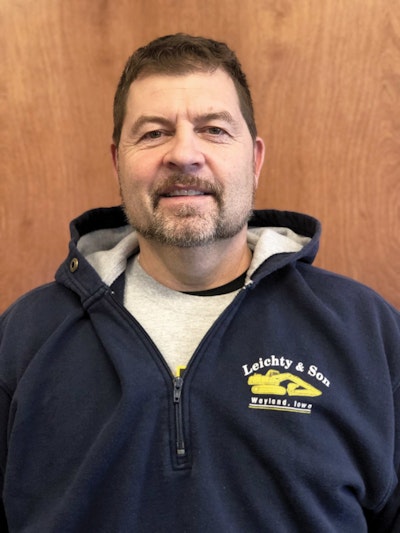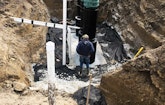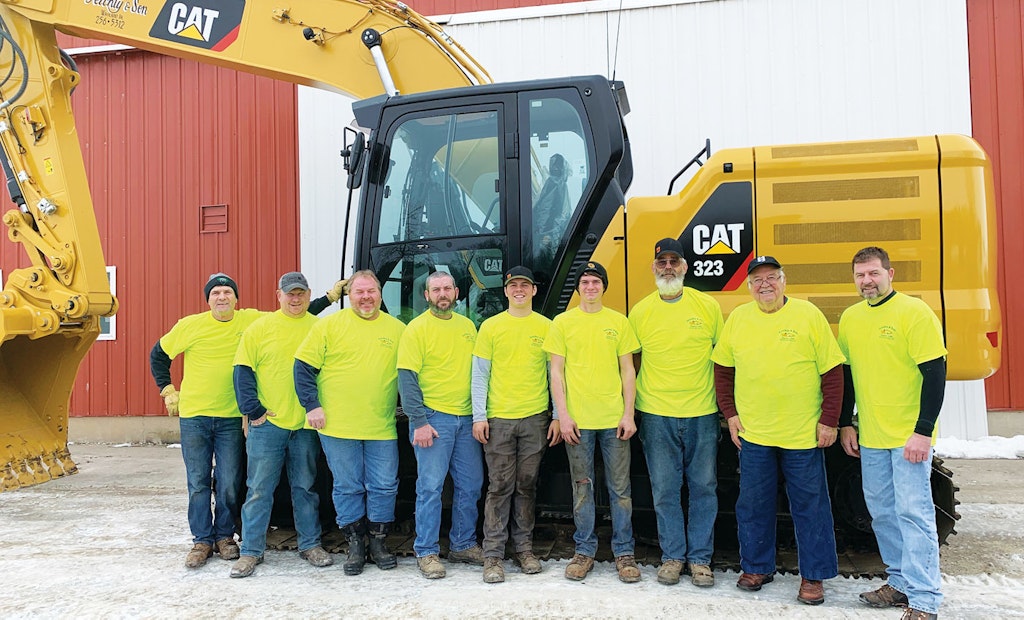In States Snapshot, we talk to a member of a state, provincial or national trade association in the decentralized wastewater industry. This time we visit a member of the Iowa Onsite Waste Water Association.
Name and title or job description: Kurt Leichty, vice president of Leichty & Son Construction and president of Leison Pumping
Business name and location: Leichty & Son Construction/Leison Pumping, Mount Pleasant, Iowa
Services we offer: Septic system installations, pumping, time-of-transfer inspections and maintenance
Age: 50
Years in the industry: 25
Association involvement: A member of the Iowa Onsite Waste Water Association since its inception and currently on the board of directors.
Benefits of belonging to the association: I get the most value from the training we receive, talking with other members in the association and meeting new suppliers at our annual conference.
Biggest issue facing your association right now: The industry will always be expanding since wastewater will always need to be treated, so keeping up with the changes in the industry is always something we’re concerned with.
Our crew includes: Brittany Davis is our office manager. Matt Stalder is a foreman, installer and inspector. Bryan Westphal is a pumper and inspector. Terry Lunsford is an installer and inspector. Walker Lunsford, Jeremy Farley, Jake Sanow, Steve Davis and Micah Johnson are installers. We wouldn’t be here today without our great staff of hardworking employees. They’re like family to us and are our company’s biggest asset.
Typical day on the job: I most like to be out on a job site with the crew running equipment, but plans often change throughout the day depending on emergency calls. I also do inspections, talk to homeowners and bid on projects throughout the week.
The job I’ll never forget: A homeowner had a septic tank failure and groundwater infiltration, which in turn backed up into his basement. To solve the problem, we installed a new system. The most difficult part was getting down to the old tank, which was 9 feet in the ground before we reached the top of the tank. The old tank was then removed and replaced with a new Wilkinson Heavy Precast 1,500-gallon, three-compartment tank. The risers were concrete with a centonite wrap. We were able to use an existing footing tile to help dewater the area around the tank. The effluent from the tank was pumped to a sand filter and then gravity-drained to the outlet.
My favorite piece of equipment: Our equipment includes a three-tandem dump truck; Caterpillar 305 and 323 excavators; Komatsu PC200, PC240, PC138 and PC160 excavators; and a 2017 Kenworth vacuum truck built out by Advance Pump & Equipment with a 3,200-gallon steel tank and National Vacuum Equipment 4310 blower. But the most useful timesaving piece of equipment is our RIDGID SeeSnake camera with locator.
Most challenging site I’ve worked on: Different times of the year can cause different installation issues, whether it’s frost in the winter or substantial rains in the spring. We’ve had to install dewatering pumps to lower the water table to set tanks. We’ve also had to use the frost tooth on a 54,000-pound excavator to rip frost for emergency septic installations. Getting to some tanks in adverse conditions can be challenging for pumping tanks as well.
The craziest question I’ve been asked by a customer: There have been a handful of times a homeowner has asked us to install their septic system in a specific area. Usually it’s because they would rather not have to look at their septic lids. But most of the time they have a lack of knowledge about how septic systems work and their request is impractical.
Best piece of small-business advice I’ve heard: Treat clients with the utmost respect. Treat them as you would want to be treated.
Planning for the future: Our goals are always the same: taking care of our existing clients, adding new ones, being efficient and offering a great service.
Crystal ball time – This is my outlook for the wastewater industry: Training homeowners is getting to be so important. The more information we can get to them about the proper care of their system, and the do’s and don’ts of the system, the better off they will be. It will make their investment more worthwhile and give them many years of trouble-free use.








